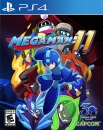Well, this deserves a longer answer.
Let me start by telling my childhood games for references: the LucasArts adventures (Indiana Jones, Monkey Island, Day of the Tentacle), UFO: Enemy Unknown, Duke Nukem 3D, Descent, Sherlock (a logic puzzle), One Must Fall 2097, Civilization and Colonization, Lemmings, Worms, DynaBlaster (european name of Bomberman), Return to Zork, Star Wars: Dark Forces, Jagged Alliance, Supaplex, Pinball Dream and Fantasies. Later in my youth also Unreal tournament, Starcraft, Heroes of Might and Magic, Baldur's Gate I+II. I also played Doom, Simon the Sorcerer and Sim City (and others) but wasn't that impressed (although Doom has banging music). I think I also played an early Bethesda game - Terminator 2029, but my memory on this is mushy. As you can see that is centered around the 90s. Most of the games I liked back then I still like. Doom grew on me as I became older.
Now, I watched the video and regarding some points:
1. Yes, we had less information. But given the time that even includes advertisements. I cannot remember *any* advertisement for games, I mostly got what others in school recommended. I would argue these days your video game decisions are far more driven by advertisment and hype (which is mostly driven by good advertisement). While we live in an age of information, the information is so abundant that serious information is drowned by other stuff, and money can buy good places for informations. So what you know about video games today is driven more by the biggest publishers with the most money than it was back in the day. Also to note, that video game companies back then were 10 guys in an office, without the funds to influence media they can today.
2. Nice Oregon Trail reference. As a european I never came in contact with the game, but I learned about it much later through Teen Titans Go.
3. Your point about picking the good games from the past is true. But I would argue it is fuel for Retro gamers. Because between hype and information flooding and technical bling it is hard to spot the games with staying power, the games with a good core. As a retro gamer it is already mostly clear which games are good and which are bad and you can save time by just picking the good ones.
4. I agree that modern games aren't inherently bad. There are some bad directions, but there are still a lot of good games. Is it harder to pick the good apples between the foul ones these days? That is hard for me to consider. Remember, back in the day I choose games filtered by multiple layers of my peers, other students. So I already only heard about games that impressed others. As the gaming industry nowadays make some people seriously rich, kids are much more targeted with ads, not necessarily identifiable as advertisement too, influencers and such are also a form of advertisement.
So, I agree with the main point of the video, that you cannot say all new games are bad.
But in this discussion between old and new there are less reasonable standpoints common: some people claim others like retro games *only* for nostalgia or that old games are worse in general because the tech advanced. This is ridiculous.
I have a rule of thumb: a good game is still good in five or ten years. If all it builds upon is some tech bling than it will not hold up over time. But you can have the tech bling and also deep and engaging mechanics, these games will stand the test of time.
That is worse for online driven games. If the server shut downs the game becomes a lot less attractive or even unplayable. And for some games that don't catch on like the publishers intended, that can happen quite fast.
I am not only playing games, but also watch movies. As movies are around a lot longer, the nostalgia theory can be tested much easier. As there are movies that are older than me, so nostalgia cannot come into play. And yet I still love movies like Casablanca, North by Northwest, Doctor Strangelove or: the incredibly long title, The Magnificient Ambersons, Seven Samurai, Modern Times, To Kill a Mockingbird or Vertigo. There are great movies in the past and we should and can recognize that. That doesn't mean there aren't great movies these days, but maybe it is harder to find them between the hype.
As a last thing, there is also the soul of a piece of art. It is hard to put a finger on it, but often we can recognize if the creators of art put their heart in it. This is relevant for this discussion, because before a art form turns into a big industry projects are financed often with free hands for the creative people, but the more money is made, the more often the business people control the project. That is also a reason why indie projects see some love, because they are often made with the creative freedom of their makers. I have a pretty modern example: a team at Ubisoft made Assassin's Creed Odyssey and then Immortals: Fenyx Rising. Both projects share similarities from gameplay to the general greek setting. But it feels a lot like Odyssey was the project that they were tasked to do, while Immortals was the project they *wanted* to do. This is relevant to this discussion, because back in the 80s, 90s and up until early 2000s most games were made by people enthusiastic about it. Yes, they also wanted to make money with it, but they wanted to make it with games because they loved games. There are a lot of upsides of a more professional gaming environment, but there is the danger that you produce games as products instead of games as art losing the soul on the way.
Sorry, this post is a lot of incoherent thoughts about the topic, partly with, partly without relation to the video in the OP. I hope you get some of my ideas that are connected to the topic and that they are interesting for you. To be clear: I don't say retro games are better than modern games, but I say they have their place beyond nostalgia (or stubbornness).

























































